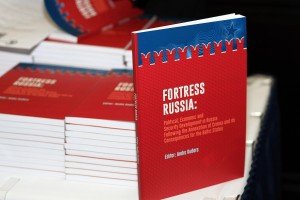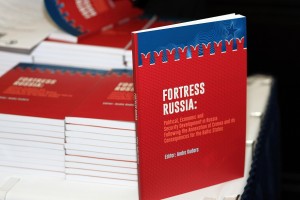
Kremlin has tried to launch its regional globalization project, whose political and economic shape develops in the form of Eurasian Economic Union, and ideological one – as the coloured in Orthodoxy shading “Russian World”. Thereby, Russia is constructed as virtually ideological multi-dimensional fortress, whose walls are built in people’s hearts and minds. Such conclusions have been drawn by the authors of the presented today new collection of articles “Fortress Russia: Political, Economic, and Security Development in Russia Following the Annexation of Crimea and its Consequences for the Baltic States”, issued by the Centre for East European Policy Studies (CEEPS).
Findings outlined in the new book were presented by the authors themselves – researchers from the Baltic states and Russia.
The leading Lithuanian expert in information warfare, researcher in the Institute of International Relations and Political Science (Vilnius University) Nerijus Maliukevičius and expert on political and international relations Simonas Algirdas Spurga pointed to the role of media in the process of building a virtual Fortress Russia. There was no real enemy who would have lurked at Russia from the West, so Kremlin invented it. The cynicism of the Russian media spreading propaganda and disinformation is unbeatable. Lies and the cultivation of fear are routine; they must lie that Russia is a besieged fortress – the nation will rally around the leader then, stresses experts.
They also explained, how cultivation of the besieged fortress ideas in Russian media plays out like a bad trick – when the population of Russia, afraid of the outer world, supports Putin’s aggressive foreign policy they eventually antagonize the free world against Putin’s revanchist regime and sometimes against Russia as a whole.
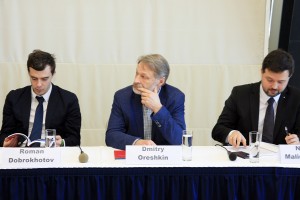
Putin’s abilities to present Russia as an attractive regional power are quite limited, that’s why Putin’s goals are attained in a virtual/propaganda sphere which has a narcotic effect of bringing relief for a while, but aggravating the situation in the long run. Regional dominance (real or imagined), unfortunately, is paid with real budgetary funds and the lives of people, stressed publicist and expert on the regional policy issues Dmitry Oreshkin. He also warned, that Putin’s ideology and policy are steering Russia close to cataclysms that can be dangerous to neighbouring countries, too.
Andis Kudors, Executive director of the CEEPS and editor of the collection of articles, indicates that an individual who is just a small screw in the big machine, without choice and responsibility, fits in well with the centralised Putinist system, where the elites do not need an active civil society but an obedient sheep-flock who do not believe things can get any better.
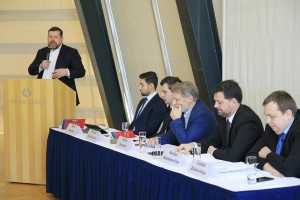
Kudors reminded, that Baltic countries have tried to implement a pragmatic policy towards Russia for many years while the compatriots’ and media policy carried out by Moscow is directing the splitting of society in the Baltics. The Baltic response should be directed inwards by rallying the nation round national symbols and democratic values as well to the outside by working out a common EU foreign policy which would contain the destructive influence of Russia. The West should understand that strengthened national identity of the Balts is a mighty defence tool against authoritarian and revanchist Russia, whose goal is not to improve democracy in the neighbourhood but to use the openness of the Baltics for its own regional dominance purposes, explained editor of the book.
Kudors also stressed, that the NATO Summit 2016 in Warsaw should help decide locating additional military units and armament in the Baltic States. Putin’s aggressive regime must be contained, reminding ourselves of a number of methods used during the Cold War era. A uniform position from the US, NATO and the EU is paramount. Moscow knows how to daunt others, but when faced with superiority, it retreats, expert concluded.
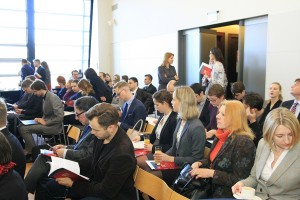
This collection of articles deals with political and economic processes in Russia from the annexation of Crimea until late 2015. The book is subdivided into four parts: Ideology, Politics, Economy and Security. Full electronic version of it is available here.
The collection of articles has been created with financial support on the part of Friedrich Ebert Foundation.
